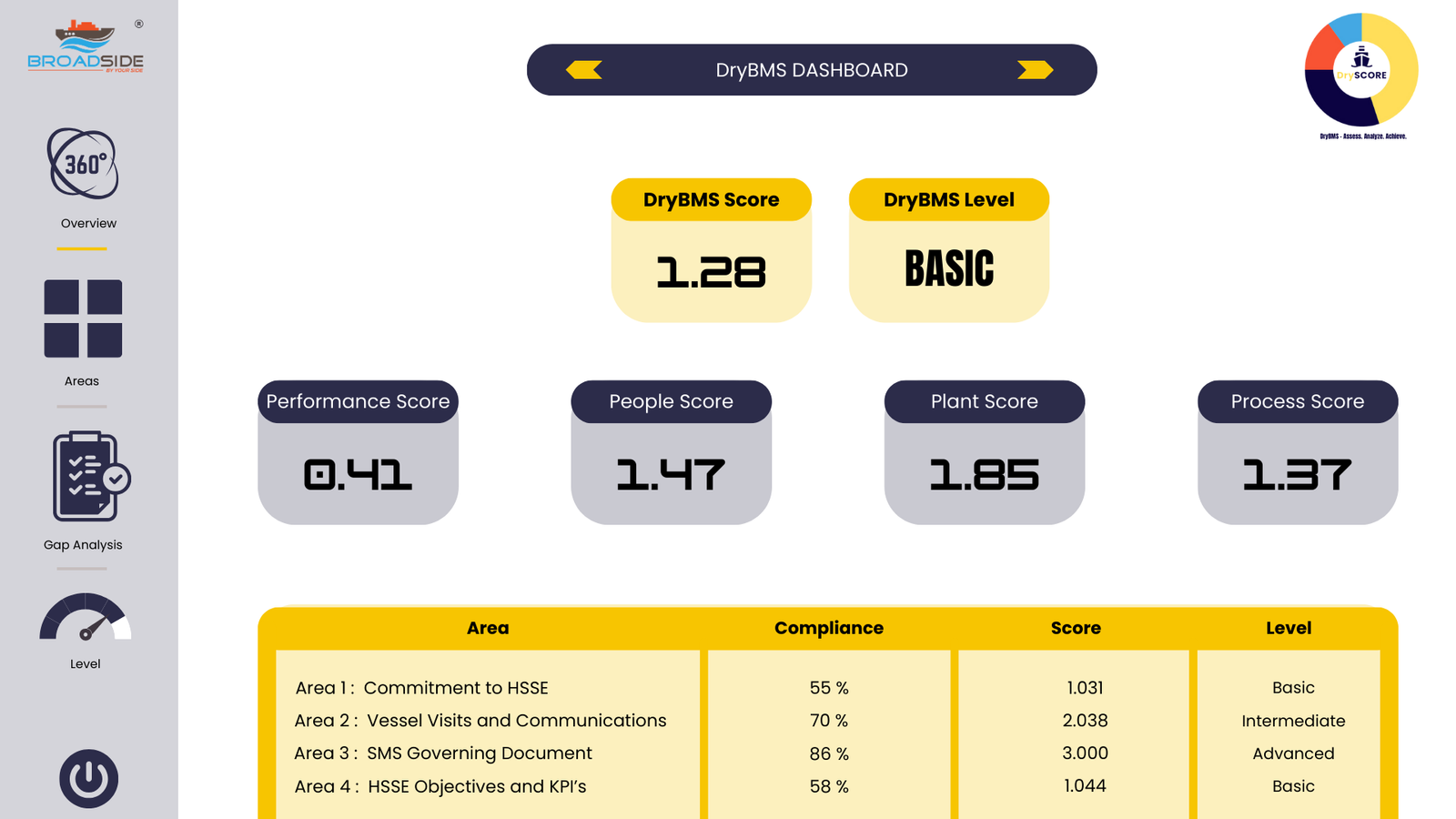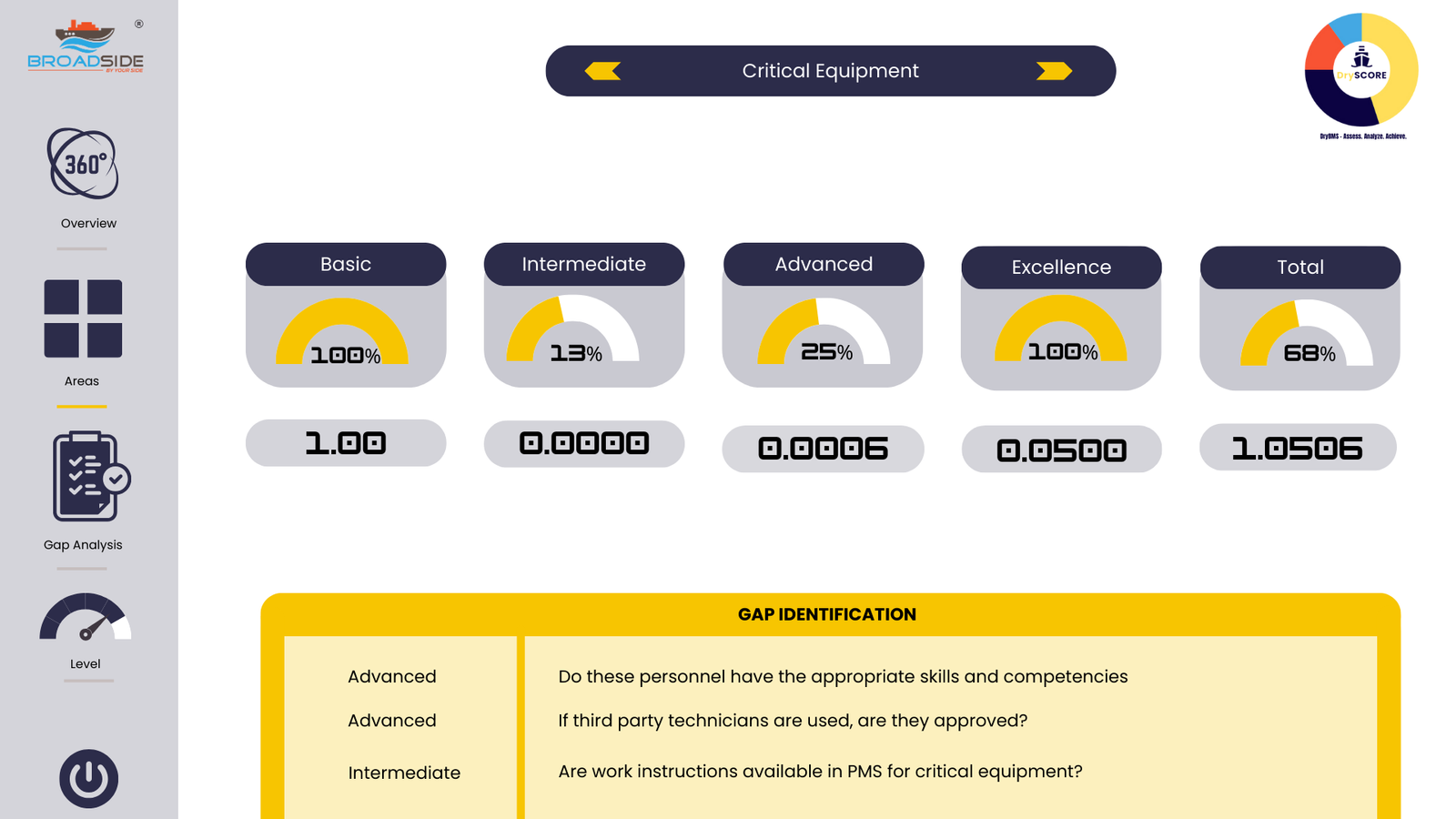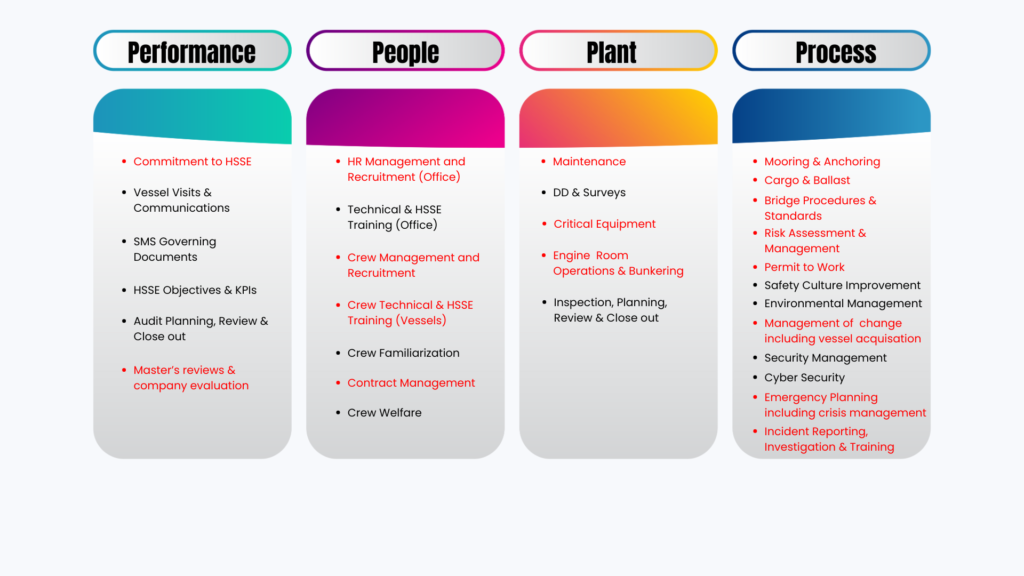DryScore
A self-assessment tool with real intelligence
DryScore assists in your DryBMS self-assessment through real time data analytics and recognizes gaps to be filled to achieve a higher level of performance.

What we offer
A tool that assists in achieving a higher level of DryBMS compliance.
DryScore calculates your Company's overall DryBMS Score which is based on an assessment of all 30 areas of DryBMS.

Bird's eye view
Discover current performance level on your dashboard
The Areas tab in DryScore dashboard shows the Level of compliance achieved in the respective Area.
How we help
A self-assessment tool built on areas of dry bulk management standard
Within the Dry Bulk Management Standard, seventeen priority areas have been identified as subject areas which have a potentially higher impact for injury to people, damage to the environment and achieving effective performance in the organization.

“
DrySCORE has helped our clients assess, analyze and achieve a competitive edge. DrySCORE's gap analysis module has also helped them achieve better performance.
Capt. Sudeep Mittal
Founder and CEO, SeaLogger
Get answers
Frequently Asked Questions
Get answers to your questions related to DryBMS
RightShip and INTERCARGO worked together to create Dry BMS. Both BIMCO and the International Chamber of Shipping have evaluated and approved it. Moreover, the standard was created after a thorough industry consultation process with the goal of raising safety, sustainability, and procedural requirements in the dry bulk business. The non-profit organization DBCE was established by RightShip and INTERCARGO with the mission of autonomously regulating the standard.
Companies can enhance their operational performance and safety, lower the risk of cargo claims and accidents, and improve industry safety by evaluating their management systems against additional standards beyond basic regulatory and statutory compliance and pursuing continuous improvement to meet the higher stages of the DryBMS Framework.
What matters isn’t the score! Companies should complete the self-evaluation process honestly and impartially to ensure that it accurately reflects the company at the time of assessment. It is typical for scores to be higher in some subjects and lower in others. Companies will then realize that the regions with lower scores offer opportunities for growth through concentration. Companies shouldn’t modify their assessment in order to manipulate the results. It is recommended that Independent DryBMS evaluators like Broadside should be engaged.
It is crucial that holders of DoCs be able to independently validate their self-evaluations in order to compare where they really are to where they have self-assessed. In order to carry out this duty, the DBCE will develop a Verification Accreditation System (VAS), whose mission will be to create a pool of verification organizations that have been recognized by the DBCE to conduct verification audits and a standardized methodology for verifications. It is recommended that Independent DryBMS evaluators like Broadside should be engaged to guarantee that all verifications are carried out in accordance with the DBCE-approved procedure. This will guarantee that verification audits are performed in accordance with the same standards everywhere, eliminating or significantly reducing subjectivity. DoC holders will be able to choose which of the authorized DBCE verification firms to use for verification audits.
While charterers (and other industry stakeholders) have shown a great deal of interest in DryBMS, we are not aware of any stringent criteria from charterers who want to require DryBMS self-assessment and verification as a condition in their chartering or screening process. Depending on each industry charterer’s or stakeholder’s unique risk management policy, this will continue to be a commercial and risk-based decision.
For the dry bulk shipping industry, DryBMS is an independent standard. Use of the standard is voluntary and has no bearing on the Rightship safety score rating or DoC holder score, despite RightShip being a founding member of DBCE and actively advocating for its adoption throughout the industry. Comparable to petroleum vetting, an oil tanker’s risk rating remains unaffected by the presence of a TMSA.
All of the companies’ self-assessments that utilize the DryBMS framework for self-assessment will be available on the DBCE portal. Users can complete the self-assessment via the portal in a controlled environment with a standardized format, and if needed, they can retrieve reports that they have already provided. The data will subsequently be visible to the whole industry for the DBCE Secretariat to develop industry standards or areas in need of attention or proactive intervention. The DBCE Secretariat can then utilize this data to assist the industry develop and do better over time.

View Demo →
Get a glance at the dashboard and real-time workings of our product DryScore for your DryBMS self-assessment.

About the Company →
SeaLogger was founded to bridge the digitalization gap in the maritime industry with an all-encompassing strategy.
